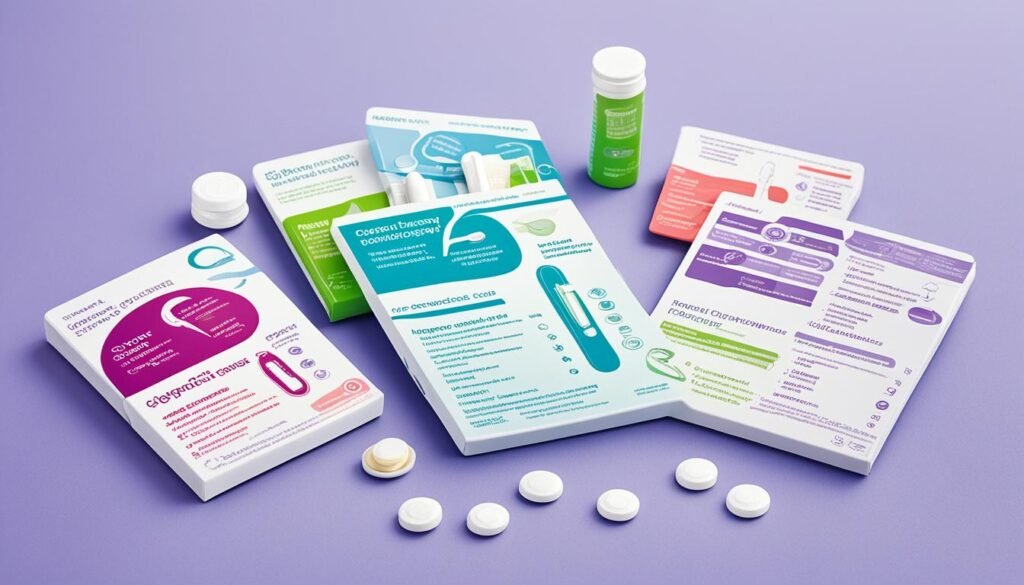In today’s world, understanding Emergency Contraception is vital for effective Pregnancy Prevention. This guide aims to provide you with essential information regarding the available Birth Control Options in Nigeria, emphasising the importance of making informed and timely decisions in reproductive health. Whether faced with an unexpected situation or looking to avoid unintended pregnancy, knowing your options can empower you to take control of your sexual health.
Key Takeaways
- Emergency contraception helps prevent unintended pregnancy such as after contraceptive failure or unprotected intercourse.
- Understanding the different methods can lead to more informed choices regarding your sexual health.
- Time-sensitive decisions are crucial when it comes to the effectiveness of emergency contraception.
- Access to these options varies, highlighting the need for awareness about local availability.
- Consulting with healthcare providers can provide additional guidance on Birth Control Options.
What is Emergency Contraception?
Emergency Contraception refers to methods designed to prevent pregnancy following unprotected sexual intercourse or contraceptive failure. It serves as a backup rather than a primary form of birth control. Understanding its definition and purpose is crucial for anyone needing to make informed decisions about pregnancy prevention.
Definition and Purpose
The primary role of Emergency Contraception is to avert unintended pregnancies. It is typically utilised in situations where another contraceptive method has failed, such as a broken condom or missed pill. The Morning After Pill is a widely recognised form of Emergency Contraception that many individuals might consider when they find themselves in such circumstances.
How It Works to Prevent Pregnancy
Emergency Contraception works by intervening in the biological processes related to fertilisation and implantation. The Morning After Pill contains hormones that can delay ovulation, making it less likely for sperm to fertilise an egg. If ovulation has already occurred, this method can alter the uterine lining, helping to prevent a fertilised egg from implanting. Understanding how these mechanisms work aids individuals in grasping the importance of acting quickly in pregnancy prevention efforts.
| Method | Active Ingredient | Time Frame for Use | Effectiveness |
|---|---|---|---|
| Levonorgestrel | Levonorgestrel | Up to 72 hours | 89% if taken within 72 hours |
| Ulipristal Acetate (Ella) | Ulipristal Acetate | Up to 120 hours | 85% if taken within 120 hours |
Being informed about these aspects of Emergency Contraception can help you make choices that safeguard your reproductive health.
Types of Emergency Contraception
Understanding the various types of emergency contraception available can significantly aid in making informed decisions about reproductive health. Two of the foremost options include Levonorgestrel, known widely as Plan B, and Ella. Each has unique properties, effectiveness, and limitations that cater to different needs.
Levonorgestrel: Understanding Plan B
Levonorgestrel, commonly referred to as Plan B, predominantly serves as a hormonal contraceptive method. This over-the-counter option is designed to prevent pregnancy after unprotected intercourse or contraceptive failure. Taking Plan B within 72 hours is crucial for optimal effectiveness. It operates primarily by inhibiting ovulation, thereby preventing fertilisation.
Ella: The Alternative Option
Ella presents a notable alternative to Levonorgestrel for emergency contraception. Unlike Plan B, Ella can be effective up to 120 hours after unprotected sex. Its active ingredient, ulipristal acetate, modifies hormonal pathways to delay or inhibit ovulation. This prolonged timeframe makes Ella a viable choice when access to emergency contraception may be delayed.
Understood Limitations of Each Method
While both Levonorgestrel and Ella function as effective contraceptive methods, they have limitations that users should consider. Plan B tends to be less effective for individuals with a higher body mass index (BMI), while Ella remains consistently effective across different BMI ranges but may not be suitable for frequent use due to potential hormonal side effects. Accessing these contraceptives promptly is crucial, as their efficacy diminishes over time.

When to Use Emergency Contraception
Understanding the circumstances in which you may need Emergency Contraception is essential for effective Pregnancy Prevention. Certain situations can arise unexpectedly, necessitating a swift response to safeguard your Reproductive Health.
Situations That Call for Emergency Contraception
Emergency Contraception is relevant in various scenarios, including:
- Unprotected intercourse, where no contraceptive method was used.
- Contraceptive failure, such as a broken condom or missed contraceptive pill.
- Sexual assault, where there is a complete lack of consent.
Time Frames for Effective Use
Acting promptly enhances the efficacy of Emergency Contraception. Here are the key time frames by method:
| Method | Time Frame for Use | Effectiveness Rate |
|---|---|---|
| Levonorgestrel (Plan B) | Within 72 hours | Up to 89% |
| Ulipristal Acetate (Ella) | Within 120 hours | Up to 98% |
Timeliness plays a crucial role in utilising Emergency Contraception effectively. Delays can significantly impact its ability to prevent unwanted pregnancy. Always prioritise swift action when faced with situations demanding Emergency Contraception.
How to Access Emergency Contraception in Nigeria
Understanding how to effectively access emergency contraception is crucial for reproductive health. In Nigeria, options such as Plan B and Ella are available, making it easier for you to obtain these medications when needed. Being informed about the process can help you make timely decisions regarding your health.
Over-the-Counter Availability
In Nigeria, emergency contraception is often available over-the-counter at pharmacies and some healthcare outlets. You may not require a prescription to access these medications, which is beneficial if you are in need of immediate options. However, it is advisable to confirm with the pharmacy regarding the specific product and its efficacy. The availability can vary by location, so you may want to consider visiting well-known pharmacies for the best access to emergency contraception.
Consultation with Healthcare Providers
While over-the-counter options are convenient, consulting with healthcare providers can offer invaluable personalised advice. A healthcare professional can guide you in understanding which method may be most suitable for your individual health needs. They can also help address any concerns regarding side effects or underlying health conditions. By seeking professional guidance, you ensure that your reproductive health decisions are well-informed and tailored to your unique circumstances.







